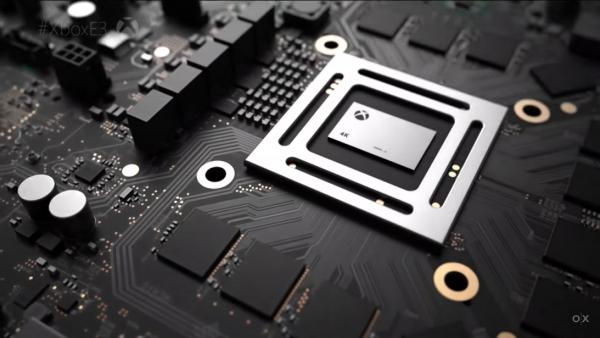By Karl Tisbe, | December 27, 2016

The Xbox 2: Project Scorpio is expected to support 4K gaming and will be compatible with VR. (YouTube)
Microsoft is set to unveil its newest gaming console the, Xbox 2 or the Xbox One 4K: Project Scorpio, during Microsoft's E3 2016 keynote session, which is scheduled to take place late in 2017.
The Xbox 2: Project Scorpio is expected to be more powerful than its competitor, the PlayStation 4 Pro. Gamers will reportedly be able to play old Xbox 360 and Xbox One games on the upcoming console.
Like Us on Facebook
The Xbox 2: Project Scorpio is expected to support 4K gaming and will be compatible with VR. Microsoft is already a step further into virtual reality with its HoloLens and with this, it will be a synch to integrate the VR world to the Scorpio. The console will also sport a very powerful graphics processing unit consisting of six teraflops (trillion floating point operations per second) of power and will have a transfer speed of 320GB per second. The Project Scorpio is expected to have an AMD Vega CPU and 5GB DDR5 RAM.
To battle it out with the upcoming gaming consoles like the hybrid Nintendo Switch, the Xbox 2: Project Scorpio is estimated to cost around $399, according to Michael Pachter of Wedbush Securities. Microsoft plans to lower the cost of high-end gaming with the Project Scorpio, beating the Sony PlayStation Pro 4K in specifications and price.
-
Use of Coronavirus Pandemic Drones Raises Privacy Concerns: Drones Spread Fear, Local Officials Say

-
Coronavirus Hampers The Delivery Of Lockheed Martin F-35 Stealth Fighters For 2020

-
Instagram Speeds Up Plans to Add Account Memorialization Feature Due to COVID-19 Deaths

-
NASA: Perseverance Plans to Bring 'Mars Rock' to Earth in 2031

-
600 Dead And 3,000 In The Hospital as Iranians Believed Drinking High-Concentrations of Alcohol Can Cure The Coronavirus

-
600 Dead And 3,000 In The Hospital as Iranians Believed Drinking High-Concentrations of Alcohol Can Cure The Coronavirus

-
COVID-19: Doctors, Nurses Use Virtual Reality to Learn New Skills in Treating Coronavirus Patients







